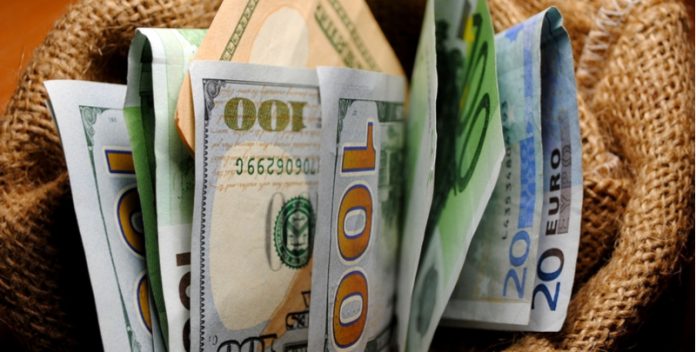The pound euro exchange rate charged higher on Monday as sterling clawed back losses from the previous week. The pound euro rate hit a peak of €1.1379, its highest level since last Wednesday. However, the rally in the pair was more a story of euro weakness than any particular strength in the pound.
| What do these figures mean? |
|---|
|
When measuring the value of a pair of currencies, one set equals 1 unit and the other shows the current equivalent. As the market moves, the amount will vary from minute to minute. For example, it could be written: 1 GBP = 1.13990 EUR Here, £1 is equivalent to approximately €1.14. This specifically measures the pound’s worth against the euro. If the euro amount increases in this pairing, it’s positive for the pound. Or, if you were looking at it the other way around: 1 EUR = 0.87271 GBP In this example, €1 is equivalent to approximately £0.87. This measures the euro’s worth versus the British pound. If the sterling number gets larger, it’s good news for the euro. |
The pound has been under significant pressure recently as poor economic data across the month of April has dampened any hope of the Bank of England (BoE) raising interest rates. Just one month ago investors were putting the probability of an interest rate hike by the central bank at around 89%. One month and a slew of poor economic data later and the market has as good as accepted that the BoE will not be hiking rates this month, when it gives its rate decision on Thursday.
Monday was a bank holiday in the UK, there were no major economic releases for pound traders to focus on. Instead the pound traded to a backdrop of government infighting over Brexit. The topic currently in question is the customs union or a new customs partnership with the EU, which could be used as a solution to the Irish border problem. Whilst the hard line Brexiteers in the Brexit cabinet shot the idea down very quickly, the UK Business Secretary suggested that the idea was still alive and with potential. This latest conflict shows how Theresa May’s government is still very unstable, with some political analysts even suggesting that her government will have collapsed before Brexit.
| How does political risk have impact on a currency? |
|---|
| Political risk drags on the confidence of consumers and businesses alike, which means both corporations and regular households are then less inclined to spend money. The drop in spending, in turn, slows the economy. Foreign investors prefer to invest their money in politically stable countries as well as those with strong economies. Signs that a country is politically or economically less stable will result in foreign investors pulling their money out of the country. This means selling out of the local currency, which then increases its supply and, in turn, devalues the money. |
Today the focus could remain with Brexit developments as the UK economic calendar remains sparse with just house price data for investors to mull over.
German Factory Orders The Latest Sign Of Weakness
The euro traded lower versus most of its peers in the previous session, weak German data fanned concerns over a loss of momentum in the eurozone economy. Germany, the largest economy in Europe reported a sizeable slow down in factory orders on Monday in the latest sign of weakness for the economy. Factory orders declined by 0.9% month on month in March, significantly short of the 0.5% growth that analysts had predicted.
| Why does poor economic data drag on a country’s currency? |
|---|
| Slowing economic indicators point to a slowing economy. Weak economies have weaker currencies because institutions look to reduce investments in countries where growth prospects are low and then transfer money to countries with higher growth prospects. These institutions sell out of their investment and the local currency, thus increasing supply of the currency and pushing down the money’s worth. So, when a country or region has poor economic news, the value of the currency tends to fall. |
Also weighing on the euro was news that political deadlock in Italy may result in another election. There was no outright winner in the Italian elections in March and no coalition has been formed, with leaders still too far apart. A fresh election in July would be a new risk event for the euro, something euro trades are so far not happy about.
|
This article was initially published on TransferWise.com from the same author. The content at Currency Live is the sole opinion of the authors and in no way reflects the views of TransferWise Inc. |





